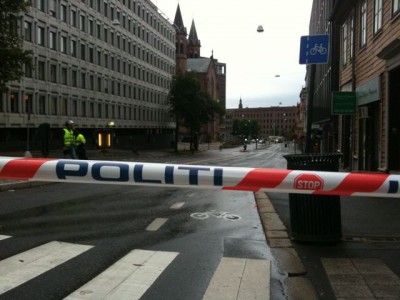The leader of a national support group for survivors of the July 22, 2011 terror attacks criticized the lack of help available less than three years after 77 people were killed and 90 more were wounded. Trond Henry Blattmann claimed on Wednesday that most of the follow-up measures designed to monitor victims’ recovery had already disappeared.

Extensive measure were set up across municipalities, schools and health care following the bombing of the government quarter in Oslo and the shootings at a Young Labour camp on the island of Utøya, reported newspaper Dagsavisen. Most of those support structures were now gone said Blattmann, but the need for them remained as strong as ever.
“We have learned from other people who have been victims of war or terror that it is very important to have follow-up apparatus,” Blattmann said. “That apparatus no longer exists.”
He said the acute care in the days and weeks after the terror was very good, but it had gradually fallen away. A long-term process was needed to help those slowly recovering. “We now have the same health care and access to psychologists as the rest of society,” Blattmann said. “The schools have no follow-up plans or offers beyond the school nurse. Those are very few, and they often have small positions. And not many GPs know anything about this.”
“We already saw after the first year that many municipalities closed down the apparatus,” he claimed. “In 2013 NOK 50 million (USD 8.3 million) in discretionary funding was set aside for the municipalities, but only 14 applied for it. That must mean that the municipalities do not have an overview. Some municipalities think they have finished the follow-up work, but that is a shameful mistake.”
Delayed reactions
Blattmann argued many people who’ve experienced atrocities have a delayed psychological reaction. “For two and a half years we have had massive media pressure, something that violently delays the grief reaction. Many who’ve gone well up until now have had a backlash. There are many who ring me and tell me that now life is difficult.”
He said the real grieving process had only just started for many, who refused psychological treatment initially. “Everything went well until the first Christmas,” Blattmann explained. “Then came the first kinks. Then they came up again when the court trial came, which lasted several weeks, with exams at the same time. You can sense how it was. Yes, many got the opportunity to to take one year’s study over two years, but that is little help without follow-up. If you do not have a special health service and psychologists to fill the void it is easy to quickly fall apart.”
Too late to ask for help
The Centre for Crisis Psychology in Bergen is conducting an ongoing project mapping the progress of July 22 survivors. Project leader Kari Dyregrov agreed the intense media pressure surrounding the trial, verdict and commission report postponed the grieving process for many. She applauded the support many workplaces had given adult survivors, but said schools had done a poor job of following up with students who were affected or were friends of victims.
“What we typically see with other violent unnatural deaths like murders, suicides and child deaths is that the processing of grief takes a very long time,” Dyregrov explained. “Here there has been a delay because of the external focus and noise which has meant that many have partially put their own grief on hold. Although some have worked through their grief in parallel, it was not as private as it can be with other individual events which give the same reactions.”
She said schools supported students well at first, but the lack of follow-up had left many young people feeling it was too late to ask for help. “When we document delayed grief reactions because of outside noise, the consequences are that the bereaved must be followed up over time. We have many reports from youths, friends and siblings who say that it was better at the start, and they’re now feeling that it’s too late to ask for assistance. Now it’s over.”
newsinenglish.no/Emily Woodgate

